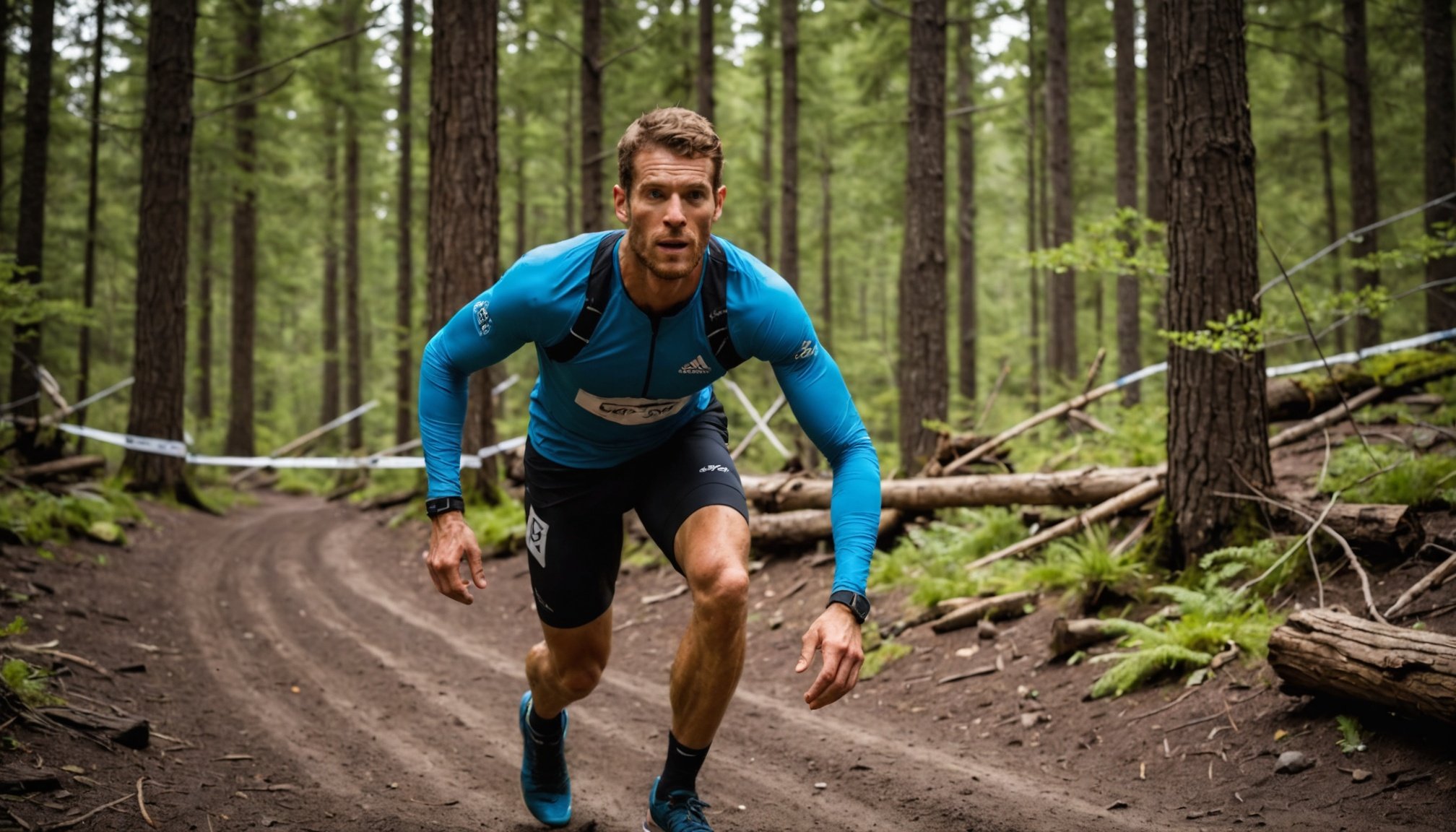Mastering Post-Competition Recovery: Essential Protocols for Ultra-Endurance Athletes
When you cross the finish line of an ultra-endurance event, the sense of accomplishment is overwhelming, but the real work is just beginning. Recovery is a critical component of any athlete’s training program, especially for those who push their bodies to the limits of human endurance. In this article, we will delve into the essential protocols for post-competition recovery, ensuring that ultra-endurance athletes can rebound stronger and more resilient than ever.
Understanding the Importance of Recovery
Recovery is not just a passive process; it is an active and intentional part of an athlete’s training plan. After an intense competition, the body is in a state of significant stress and damage. Muscles are fatigued, energy stores are depleted, and the immune system is compromised. Ignoring the need for proper recovery can lead to overtraining, injuries, and a decline in performance over the long term.
Have you seen this : A guide to enjoying kendal soccer park: play, explore, connect
“As a society, we’re fascinated with pain: controlling pain, mastering pain, and the elation that comes when it’s gone,” notes Mari Dottschadis, a sports psychologist. However, this mindset can be detrimental if it leads athletes to neglect their recovery needs.
Immediate Post-Race Recovery
The first 24-48 hours after a competition are crucial for initiating the recovery process.
Have you seen this : Boosting Combat Sports Performance: A Guide to Neurocognitive Training for Sharper Reflexes
Nutrition and Hydration
Proper nutrition and hydration are key to kick-starting the recovery process. Here are some essential tips:
- Carbohydrates and Protein: Consuming a mix of carbohydrates and protein within 30-60 minutes after the race helps in replenishing energy stores and repairing muscle tissue. Aim for a ratio of 3:1 or 4:1 carbohydrates to protein.
- Hydration: Rehydrate with electrolyte-rich drinks to replace lost salts and minerals. Aim to drink at least 16-20 ounces of fluid for every pound of body weight lost during the competition.
- Electrolytes: Include electrolyte supplements or natural sources like bananas (potassium), avocados (potassium), and nuts (magnesium) in your diet.
Rest and Sleep
Rest is paramount for muscle recovery and overall body repair.
- Active Recovery: Engage in light, low-intensity activities like walking, cycling, or swimming to promote blood flow without exacerbating muscle fatigue.
- Sleep: Ensure you get 7-9 hours of sleep each night to allow your body to repair and rebuild tissues.
Physical Therapy and Massage
Physical therapy and massage can significantly aid in the recovery process.
- Foam Rolling and Self-Myofascial Release: Use foam rollers or your own body weight to release tension in the muscles.
- Professional Massage: Schedule a massage within 48 hours of the competition to help reduce muscle soreness and improve circulation.
Long-Term Recovery Strategies
While immediate recovery is crucial, long-term strategies are equally important to ensure sustained performance and prevent overtraining.
Strength Training
Incorporating strength training into your recovery program can enhance overall performance and reduce the risk of injuries.
- Core Strength: Focus on exercises that strengthen your core, such as planks, deadlifts, and squats. A strong core improves posture, power, and efficiency in almost every sport.
- Functional Strength: Engage in functional strength training that mimics the movements of your sport. For example, trail running athletes can benefit from exercises like step-ups and balance boards.
Endurance Training
Endurance training should be tailored to allow for adequate recovery time.
- Training Zones: Use heart rate zones to monitor your intensity. Ensure you include moderate to high-intensity training sessions, but also allow for recovery days with low-intensity exercise.
- Periodization: Periodize your training to include high-volume training phases followed by recovery phases. This helps in avoiding overtraining and allows for peak performance during competitions.
Body Composition and Nutrition
Maintaining optimal body composition and nutrition is vital for endurance athletes.
- Body Fat Percentage: Aim for a body fat percentage that is optimal for your sport. For endurance athletes, this is typically between 6-12% for men and 12-18% for women.
- Balanced Diet: Ensure your diet is balanced with the right mix of carbohydrates, proteins, and fats. Pay attention to your macronutrient intake to support your training and recovery needs.
Mental Recovery
Mental recovery is often overlooked but is as important as physical recovery.
Mindfulness and Meditation
Techniques like mindfulness and meditation can help athletes improve concentration and mental toughness.
- Yoga and Meditation: Incorporate yoga and meditation into your routine. These practices help in improving focus, reducing stress, and enhancing overall mental well-being.
- Visualization: Use visualization techniques to mentally rehearse your performance and build confidence.
Team and Social Support
For team sports, social support can be a powerful tool in recovery.
- Team Bonding: Engage in team-building activities that promote camaraderie and shared experiences beyond the usual training routines.
- Coaches and Mentors: Work with coaches, physical therapists, or sports psychologists who can provide guidance and support during the recovery process.
Practical Insights and Actionable Advice
Here are some practical tips and actionable advice to help you master post-competition recovery:
Sample Recovery Plan
| Day | Activity | Intensity | Notes |
|---|---|---|---|
| 1 | Rest | Low | Avoid any strenuous activity |
| 2 | Light Cycling | Low | 30 minutes, easy pace |
| 3 | Strength Training | Moderate | Focus on core and functional strength |
| 4 | Rest | Low | Active recovery, e.g., walking |
| 5 | Endurance Training | Moderate High | Heart rate zone 3-4 |
| 6 | Rest | Low | Active recovery, e.g., swimming |
| 7 | Long Endurance Training | High Volume | Heart rate zone 2-3 |
Detailed Tips for Ultra-Endurance Athletes
- Listen to Your Body: Pay attention to your body’s signals. If you feel fatigued or in pain, it’s a sign that you need to adjust your training plan.
- Use Technology: Utilize heart rate monitors, GPS watches, and other tools to track your performance and recovery metrics.
- Stay Hydrated: Continuously hydrate throughout the day, especially during and after intense training sessions.
- Prioritize Sleep: Ensure you get adequate sleep each night. Lack of sleep can significantly impair your recovery and performance.
Recovery is not just an afterthought; it is an integral part of an ultra-endurance athlete’s training program. By understanding the importance of recovery, implementing immediate and long-term recovery strategies, and focusing on mental well-being, athletes can ensure they are always performing at their best.
“Real toughness is experiencing discomfort or distress, leaning in, paying attention, and creating space to take thoughtful action,” notes performance coach Steve Magness. This mindset is crucial for navigating the challenges of ultra-endurance sports and ensuring a successful recovery.
So, the next time you cross that finish line, remember that the real victory lies not just in the race itself, but in how well you recover and prepare for the next challenge. With the right protocols in place, you can ensure that your body, mind, and spirit are always ready to take on the next ultra-endurance adventure.











